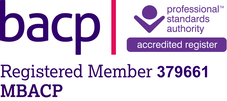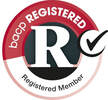What's the difference between counselling and therapy?
Counselling is short-term treatment that normally deals with one specific aspect of your life that is causing difficulties.
Therapy is longer-term, involving a deeper exploration of what makes you tick, and can involve getting curious about who you are, how you spend your time.
Therapy is longer-term, involving a deeper exploration of what makes you tick, and can involve getting curious about who you are, how you spend your time.
Do you offer counselling or therapy?
I offer both.
You might see a counsellor to explore something specific you are struggling with, and it awakens a curiosity to venture deeper into your life.
Or vice versa - you might start off with a deeper exploration and then decide you want to zone in on one specific aspect. It's up to you.
You might see a counsellor to explore something specific you are struggling with, and it awakens a curiosity to venture deeper into your life.
Or vice versa - you might start off with a deeper exploration and then decide you want to zone in on one specific aspect. It's up to you.
What kinds of service do you offer?
I offer individual counselling and individual psychotherapy for adults from 16 years to 116 years!
A session lasts 50 to 55 minutes, which includes some minutes at the end to review our work together.
A session lasts 50 to 55 minutes, which includes some minutes at the end to review our work together.
Does online therapy work?
Good question.
Pre-pandemic, I was sceptical.
So, I didn’t offer it until I felt confident that I could be in a therapeutic relationship with my face being seen and voice being transmitted via a phone/tablet/computer.
How did I become confident?
I did online training (provided by the Open University in conjunction with BACP), and I actively got involved in online Encounter Group sessions, where I experienced moments of mutual deep emotional connection with individual group members.
Although Encounter Groups are different to therapy, the deep emotional connection is common to both (and one of the reasons I love my job and I also love participating in Encounter Groups).
Pre-pandemic, I was sceptical.
So, I didn’t offer it until I felt confident that I could be in a therapeutic relationship with my face being seen and voice being transmitted via a phone/tablet/computer.
How did I become confident?
I did online training (provided by the Open University in conjunction with BACP), and I actively got involved in online Encounter Group sessions, where I experienced moments of mutual deep emotional connection with individual group members.
Although Encounter Groups are different to therapy, the deep emotional connection is common to both (and one of the reasons I love my job and I also love participating in Encounter Groups).
Is my information confidential?
The short answer is yes. I store client information online in a double encrypted ultra-secure system.
I am a Registered Member of the British Association of Counselling and Psychotherapy (BACP) and abide by their ethical framework. This means if a situation arises that involves potential harm, I might want to talk about it with an outside agency.
However, if this was to arise, I would rarely do it without my client’s knowledge or consent. The BACP ethical framework also requires that I discuss my work with my clinical supervisor, however, this is done in both a confidential and anonymous way.
I am a Registered Member of the British Association of Counselling and Psychotherapy (BACP) and abide by their ethical framework. This means if a situation arises that involves potential harm, I might want to talk about it with an outside agency.
However, if this was to arise, I would rarely do it without my client’s knowledge or consent. The BACP ethical framework also requires that I discuss my work with my clinical supervisor, however, this is done in both a confidential and anonymous way.
What is therapy like?
My approach to therapy is interactive: I talk as well as listen closely. It’s a warm, collaborative exploration.
I am a Person-Centred & Experiential Therapist, which means I bring myself - my life experience, as well as my feelings and experiences in the moment. I am present, and listen closely to you, using my ears, my eyes and my intuition.
I am a Person-Centred & Experiential Therapist, which means I bring myself - my life experience, as well as my feelings and experiences in the moment. I am present, and listen closely to you, using my ears, my eyes and my intuition.


